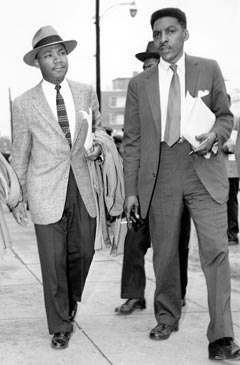So you might be wondering how a chapter on history ended up in your intercultural book? After all, this is a communication, not a history course. But as noted by Martin and Nakayama (2013), "the history that we know and our views of that history are very much influenced by our culture" (p.127). They went on to discuss how, at times, students in their intercultural communication courses wished to de-emphasize the importance of history in terms of culture, saying "Why do we have to dwell on the past? Can't we all move on?" While other students saw history as vital to their identity. I tend to agree with the latter evoking the old cliche: you don't know where you are going until you understand where you have been.
 |
| Cicero |
It was during this rally that Dr. Martin
Luther King, Jr. delivered his infamous "I Have a Dream" speech.
I choose this event to highlight the relationship between history and the
communication of culture for a couple of reasons. First, it highlights the
movement from history to histories as the event has implications for national
history as well as cultural-group histories and shines a light on absent
histories. Second, the rally spotlights nonmainstream histories, which are also
referred to as hidden histories. These histories are often forgotten by
mainstream representations of past events (Martin & Nakayama, 2013).
Nonmainstream histories include racial and ethnic, gender, sexual orientation,
colonial, socioeconomic, and religious histories. Furthermore, the march has
particular implications for spotlighting tensions that may exist between
histories, In this case, tensions between national, racial/ethnic, and sexual
orientations histories due to the controversial involvement of civil rights
leader Bayard Rustin, who identified as a gay man.
 |
| Rustin (R) with MLK, Jr (Left) |
So for this blog post, I would like you to explore cultural-group histories by examining the history of a cultural group that you are unfamiliar with. This can also get you thinking about a cultural group of interest for your reporter project (hmmm maybe even use your cultural group of interest in this blog post, hint, hint).Begin the blog by first explaining the significance of shifting from history singular to histories plural. Then discuss a cultural group that you are unfamiliar with by describing a significant event in its history (e.g. something similar to my discussion of Rustin and the March on Washington). Finally, discuss how this shift from history to histories helps us develop a richer understanding of intercultural communication.




No comments:
Post a Comment